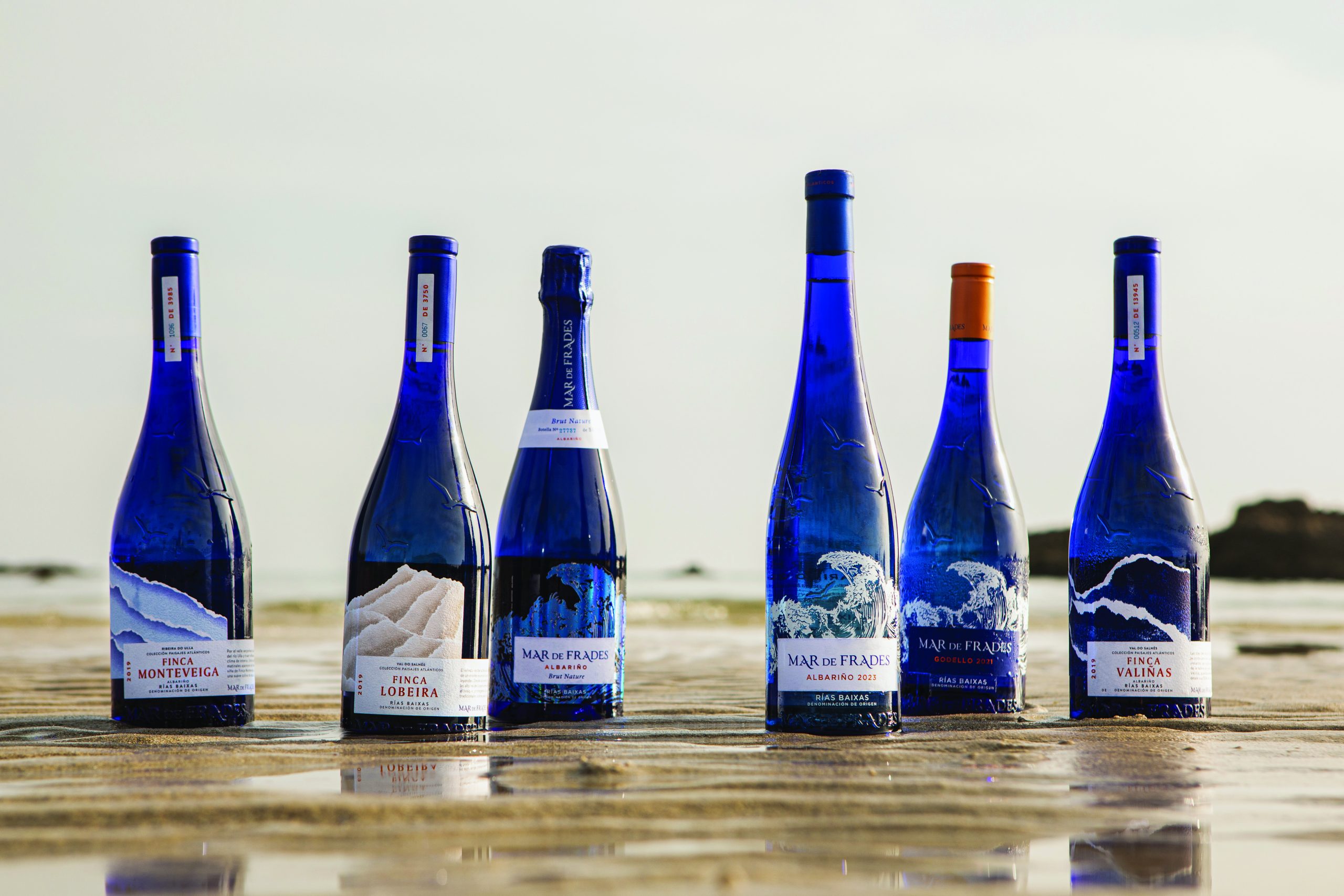Wine trade writes open letter to Under-Secretary of State Victoria Prentis
Over 50 companies in the UK wine trade have written to Victoria Prentis, the Under-Secretary of State for Farming, Fisheries and Food, over concerns relating to VI-1 import forms.

The companies, which together represent 70% of the 1.34 billion bottles of wine sold in the UK each year, have written a strongly-worded letter to Victoria Prentis MP.
The companies call for the requirement for VI-1 forms and the EU simplified certificate to be scrapped once the easement period ends on 1 July.
They argue that as things stand, the average size of orders from many of Europe’s smaller wine producers will make the new administrative burden cost prohibitive.
They state that the post-Brexit plans are of “great concern” to the UK trade and risk wine being diverted away from the UK market, affecting all sectors, including the already hard-hit hospitality industry, that rely on sales.
One of the signatories and a prominent campaigner against the new regulations, Daniel Lambert, who owns his own Wales-based import company, said it was “possibly the most important letter the wine industry has ever compiled to the UK government”.
The letter is published in full below:
Dear Victoria Prentis,
We are writing to you about a topic of great concern to the wine industry: VI-1 forms, or wine importation forms.
We, the undersigned, represent companies that account for sales of 932,356,560 bottles, which account for 70% of the 1.34 billion bottles sold annually in the UK. At the current duty rates of £2.23 on a bottle of still wine, and £2.86 on a bottle of sparkling wine, and 20% VAT on this excise duty, this amounts to a contribution to the exchequer of over £3.73 billion. In addition, there is VAT on the value of wine, which contributes approximately £1.11 billion.
Partner Content
Wine consumption has fallen by 100 million bottles in the past five years. At the same time, the average selling price has risen as people drink less but drink better. The drop in excise duty going to the Treasury will be compensated for by higher VAT receipts on wines of higher value.
While we very much appreciate the confirmation in the Trade and Cooperation Agreement for a simplified wine import document, as opposed to the VI-1, the introduction of the new paper-based form in less than six months is worrying for all our companies.
Wine importing and distribution is a low margin business (with an average EBITDA across the industry of 2.5%, according to Plimsolls), so any extra administrative burden adds to our costs. This will make wines more expensive for the consumer. For those of us who deal with EU wines, our administrative burden has increased noticeably since 1 January 2021 due to the need for export documentation from our suppliers in the EU and import documentation when these wines arrive in the UK. This documentation did not exist prior to 1 January.
The introduction of VI-1 forms, a protectionist measure imposed on third countries by the EU, will add to this burden – even in their new simplified form. We were disappointed by your answer to a parliamentary question on 15 January in which you intimated that your Department is still considering the introduction of a wine import certificate for EU wines when the easement provided in the Food and Drink (Amendment) (EU Exit) Regulations 2020 expires on 1 July 2021. This would cause great damage to wine importing and retailing, as well as to hospitality, where over 60% of all wines sold are from European countries.
While most wines from third countries (Australia, New Zealand, Argentina, South Africa, Chile etc) are shipped in large quantities, which means the cost of administrative documents such as VI-1s can be spread over a large number of bottles, the average size of an order from many of Europe’s smaller producers will make the cost of this new administrative burden prohibitive. As a result, many producers, especially those whose wines are in high demand internationally, will divert shipments away from the UK, which will further weaken our already battered hospitality industry, whose revenues were boosted by sales of over £4bn worth of wine in 2019. The UK hospitality industry enjoys a justified reputation for the quality and variety of wines it offers to British consumers and international tourists alike, and needs our support in this difficult period.
We would ask that you end the easement on 1 July and take it as an opportunity to remove entirely the requirement for VI-1s and for the EU simplified certificate. Please do not add another level of bureaucratic form-filling to the importation of EU wines.
It was an oft-stated objective of this government to reduce the amount of bureaucracy UK businesses had to deal with when we left the EU. This provides you with an opportunity to do just that, and to help our industry to survive in what are very challenging times.
Yours sincerely, the undersigned
Accolade Wines (Caroline Thompson-Hill, Managing Director, Europe)
Alliance Wine (Giles Cook MW, Director)
Amathus Drinks (Harry Georgiou, Managing Director)
Australian Vintage (Julian Dyer, Chief Operating Officer – UK, Europe, Americas)
Bancroft Wines (Jon Worsley, Chief Executive Officer)
Benchmark Drinks (Paul Schaafsma, Managing Director)
Berkmann Wine Cellars (Rupert Berkmann, Chief Executive Officer)
Bibendum Wine (Michael Saunders, Chief Executive)
Boutinot Wines (Dennis Whiteley, Managing Director)
Cambridge Wine Merchants (Hal Wilson, Managing Director)
Daniel Lambert Wines (Daniel Lambert, Owner)
Direct Wines (Nick Taylor, Group Buying Director)
Ehrmanns Wines (Paul Dauthieu, Head of Operations)
Enotria&Co (Troy Christensen, Chief Executive Officer)
Farr Vintners (Tom Hudson, Director)
Fine & Rare (Patrick O’Connor, Chief Executive Officer)
Fine Wines Direct (Nigel O’Sullivan, Managing Director)
Freixenet Copestick (Robin Copestick, Manging Director)
Gonzalez Byass (Martin Skelton, Managing Director)
Graft Wine (David Knott and Nik Darlington, Co-Founders)
Hallgarten & Novum Wines (Andrew Bewes, Managing Director)
Hatch Mansfield Agencies (Patrick McGrath, Managing Director)
Hennings Wine Merchants (Matthew Hennings, Managing Director)
Howard Ripley Wines (Sebastian Thomas, Director)
J W Lees & Co. (William Lees-Jones, Managing Director)
John E. Fells & Sons (Steve Moody, Managing Director and Executive Chairman)
Lanchester Wines (Tony Cleary, Managing Director)
L’Art Du Vin (Philippe Larue, Managing Director)
Lea & Sandeman (Charles Lea, Director)
Les Caves de Pyrene (Amy Morgan, Managing Director)
Liberty Wines (David Gleave, Managing Director)
Liv-ex (James Miles, Chairman and Managing Director)
Maisons Marques et Domaines (Richard Billett, Managing Director)
Matthew Clark (Clara Shand, Commercial Director)
Mentzendorff (Andrew Hawes, Managing Director)
Moët Hennessy UK (Alexei Rosin, Managing Director)
North South Wines (Kim Wilson, Managing Director and Founder)
NY Wines of Cambridge (Noel Young, Founder)
Off-Piste Wines (Andy Talbot, Managing Director)
Pol Roger Portfolio (James Simpson, Managing Director)
Raymond Reynolds (Raymond Reynolds, Chairman and Founder)
S. H. Jones (Greg Shaw, General Manager)
Shepherd Neame (Jonathan Neame, Chief Executive)
Talking Wines (Simon Thomson, Director)
The Oxford Wine Company (Ted Sandbach, Owner and Chairman)
The Wine Society (Steve Finlan, Chief Executive)
Thorman Hunt (Tim French, Managing Director)
Vinceremos Wines & Spirits (Jem Gardener, Managing Director)
Vine Trail (Nick Brookes, Managing Director)
Vranken Pommery UK (Julien Lonneux, Chief Executive Officer)
Wine Importers (Gordon White, Managing Director)




